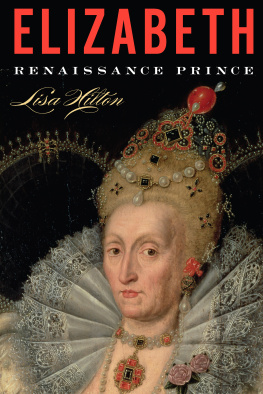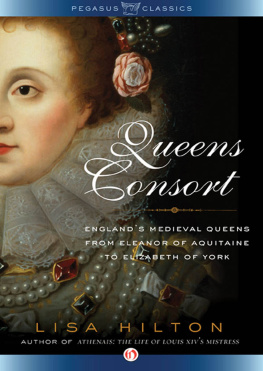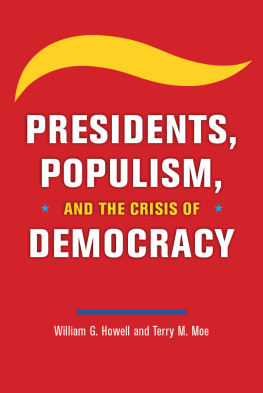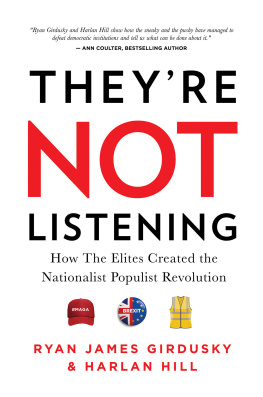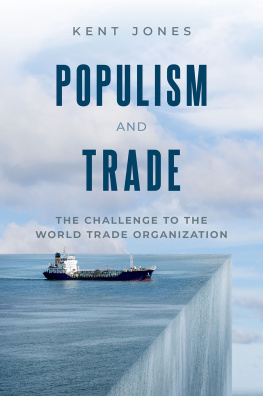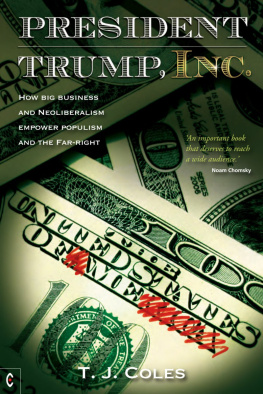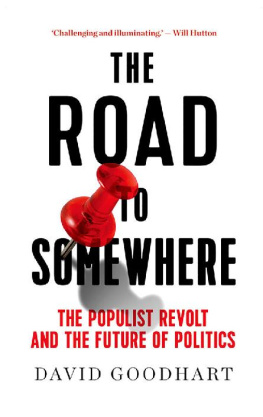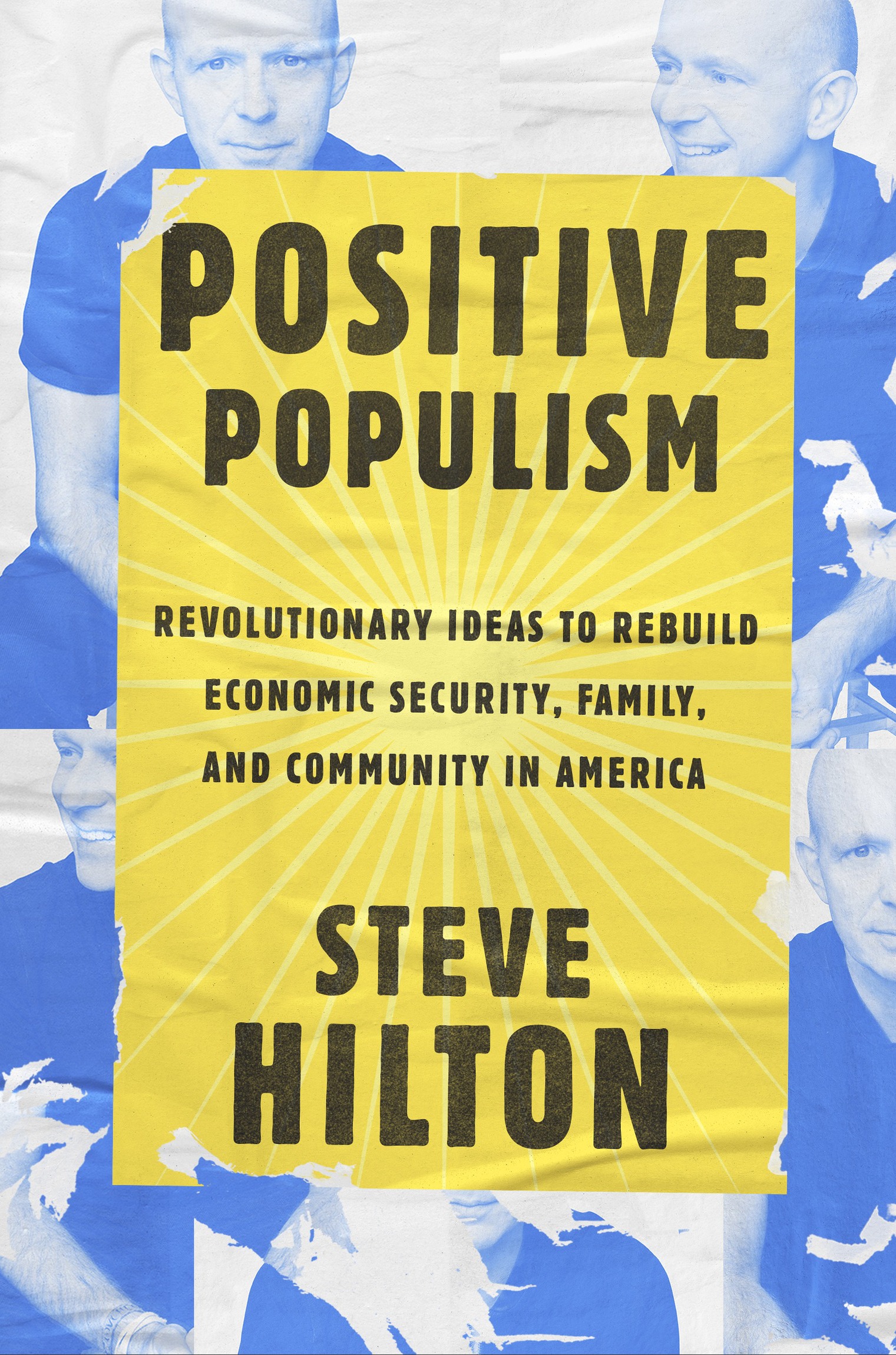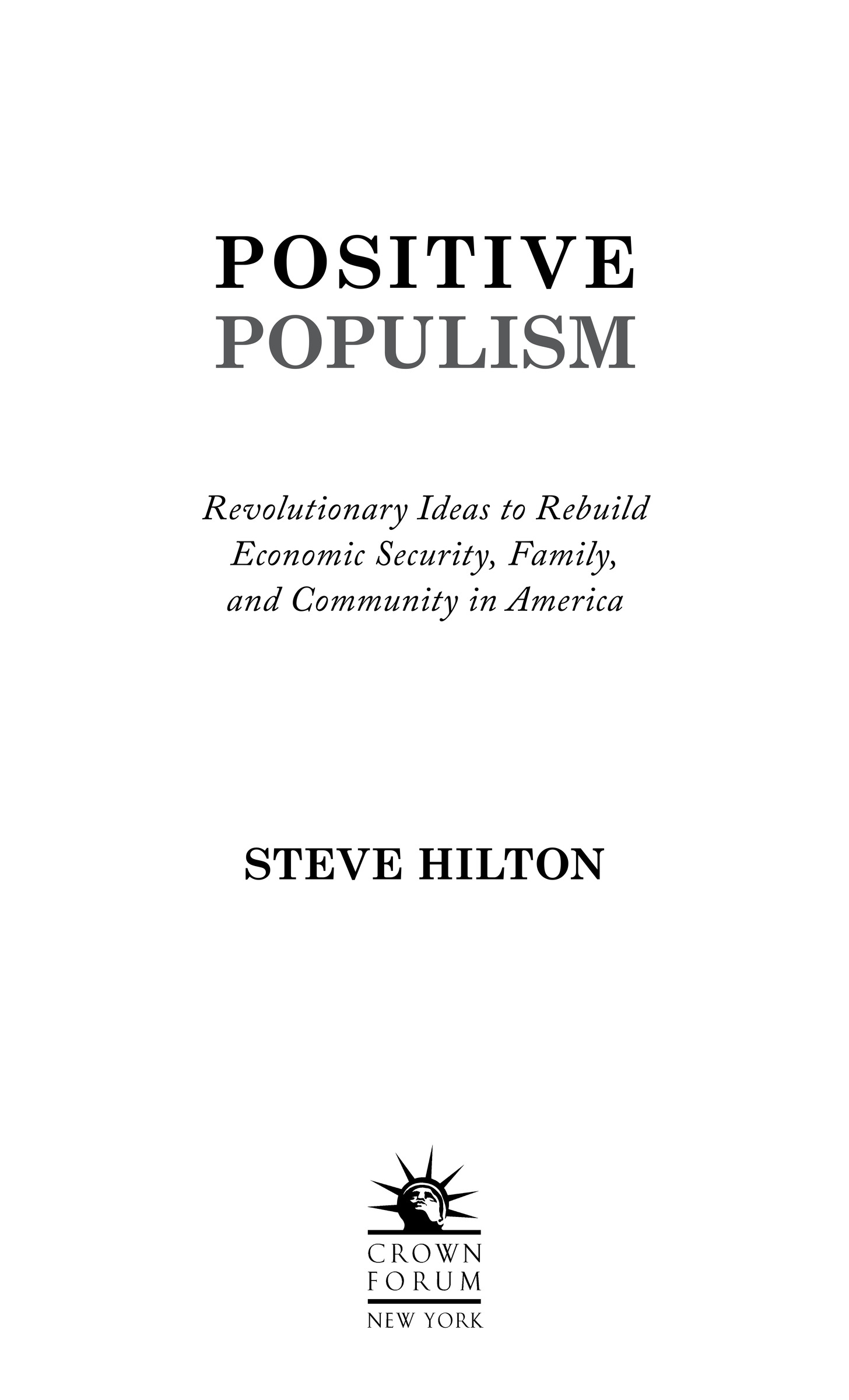All rights reserved.
Published in the United States by Crown Forum, an imprint of the Crown Publishing Group, a division of Penguin Random House LLC, New York.
CROWN FORUM with colophon is a registered trademark of Penguin Random House LLC.
Names: Hilton, Steve, author.
Title: Positive populism : revolutionary ideas to rebuild economic security, family, and community in America / Steve Hilton.
Identifiers: LCCN 2018013750 (print) | LCCN 2018015977 (ebook) | ISBN 9780525575597 (e-book) | ISBN 9780525575580 (hardcover)
Subjects: LCSH: Political participationSocial aspects United States. | PopulismUnited States. | Decentralization in governmentUnited States. | Political cultureUnited States.
Classification: LCC JK1764 (ebook) | LCC JK1764 .H557 2018 (print) | DDC 320.56/620973dc23
INTRODUCTION
This is an invitation for you to participate in the next revolution: the return of power back to the people, just as the Constitution intended.
Why is a revolution needed? Just one shocking fact tells the story. If you take inflation into account, in 1972 the average American worker earned $738.86 a week. In 2016, the figure was $723.67 a week. Forty-four years and a pay cut of 2 percent. That is why we need a revolution.
But why a populist revolution? Why must it return power to the people? The case Ill make to you in this book is that the institutions and policies that shape todays economy, society, and government overwhelmingly benefit those at the topnot just the famous 1 percent but more like the top 20 percent; that working Americans have been left out of the many great advances made by this elite in the last few decades; and that the ladder into the elite is mostly broken.
I want to show you that this state of affairsintimately linked to the transformative trends of our time, globalization and technologyis not inevitable or something outside our control, like the weather, but is instead the result of deliberate policy choices made by the elite who benefit from them. Those policy choices are an ideology in their own right, shared by a ruling class of Republicans and Democrats, conservatives and liberals, and we can describe that ideology as elitism. Elitisms defining characteristic, and the central reason for its failure, is the concentration of economic and political power in the hands of the few, not the many.
Thats why we need a specifically populist revolution.
The result of the 2016 presidential election and Great Britains Brexit vote to leave the European Union five months before were the first tangible signs that such a revolution may be possible. In both cases, members of the ruling classin all mainstream political parties, in business, in academia, in the bureaucracy, and in the mediawere united on one side; yet voters chose the other.
But those votes themselves were not the revolution. Its what happens next that matters. Will the election of Donald Trump, the Brexit vote, and other irruptions of populist sentiment at the ballot box turn out to be vocal but insubstantial phenomena that leave the underlying power structures unchanged? Or will we see a decisive shift of power from the elite to the rest of society?
This book sets out ideas for long-term change that would bring about that power shift, and thereby deliver the positive promise of populism: to improve the standard of living and quality of life for working people. To strengthen the ties of family, community, and nation that bind us, ties that have become so horribly frayed of late. To make government more accountable and responsive. And to do all this in a way that is open and welcoming.
But populism will only be positive if weyoumake it so.
We need to reclaim the revolution from those who would take it in a different direction. Until now, populism has been defined by the people who dont believe in it. It has been characterized by elites on the left as nativist, even racist; by elites on the right as unconservative or anti-capitalist. The peoples anger has horrified the elites on all sides. And no wonder: the technocrats, bureaucrats, and corporatists from Wall Street to Silicon Valley, from Brussels to Davos and back to Washington, DC, sense a threat to their power. They may not really understand the revolutionary impulse but they do see it as a terrible impertinence.
Regardless, there are good reasons for the rage at todays establishment: insecurity in the present, anxiety about the future, and impatience for change. It adds up to a whole lot of anger. But anger without an agenda leads to self-pity and further frustration. Thats why the populist revolution needs to be fashioned into a coherent and positive political philosophy, one that understands and respects todays anti-elite sentiment but channels it away from any dark ends toward constructive and lasting transformation of our economy, society, and government.
We all knowor think we knowwhat populism is against. Now its time to spell out what populism is for. That is the aim of this book, to show how positive populists can help remake America with radical reforms rooted in the uplifting and unifying idea at the heart of the grassroots rebellion: people power. That is, of course, the idea at the heart of America itself. In that sense, by advancing the aims of Positive Populism we reclaim the American Revolution, too.
So its time to attack the terrible concentration of economic and political power that has disfigured and divided America, undermining faith in our institutions, in democracy, even the rule of law. Its time to put power back in the hands of the people. For this to happen, that power must be wrenched from the clenched fists of the insiders and the plutocrats and the assorted hangers-on of our comfortable ruling class.
And by the way, I know what Im talking about. Im one of them.
I didnt start out like that.
I grew up in a small town in the south of England. My parents were Hungarian immigrants; they met while working in the kitchen of a cafe at Londons Heathrow Airport. My father (who had once been the goalkeeper for the Hungarian national hockey team, winning an Olympic medal), walked out on us and returned to Hungary when I was four. My mother earned what she could as a clerk in a shoe store and later in the typing pool (younger readers: Google it) of a banks head office. Later, she met my stepfather, also Hungarian, who had arrived in Britain as a refugee after the 1956 Soviet invasion. Back then he was a teenage boy living within a days walk of the Austrian border. He still recalls the cries of his neighbors: The Russians are coming! He, his brother, and some friends ran for freedom. Some didnt make it. Hungarys democratically elected prime minister was imprisoned and executed. My stepfather was sent to England, where he found work on a construction site and over the years built his own small construction business.




